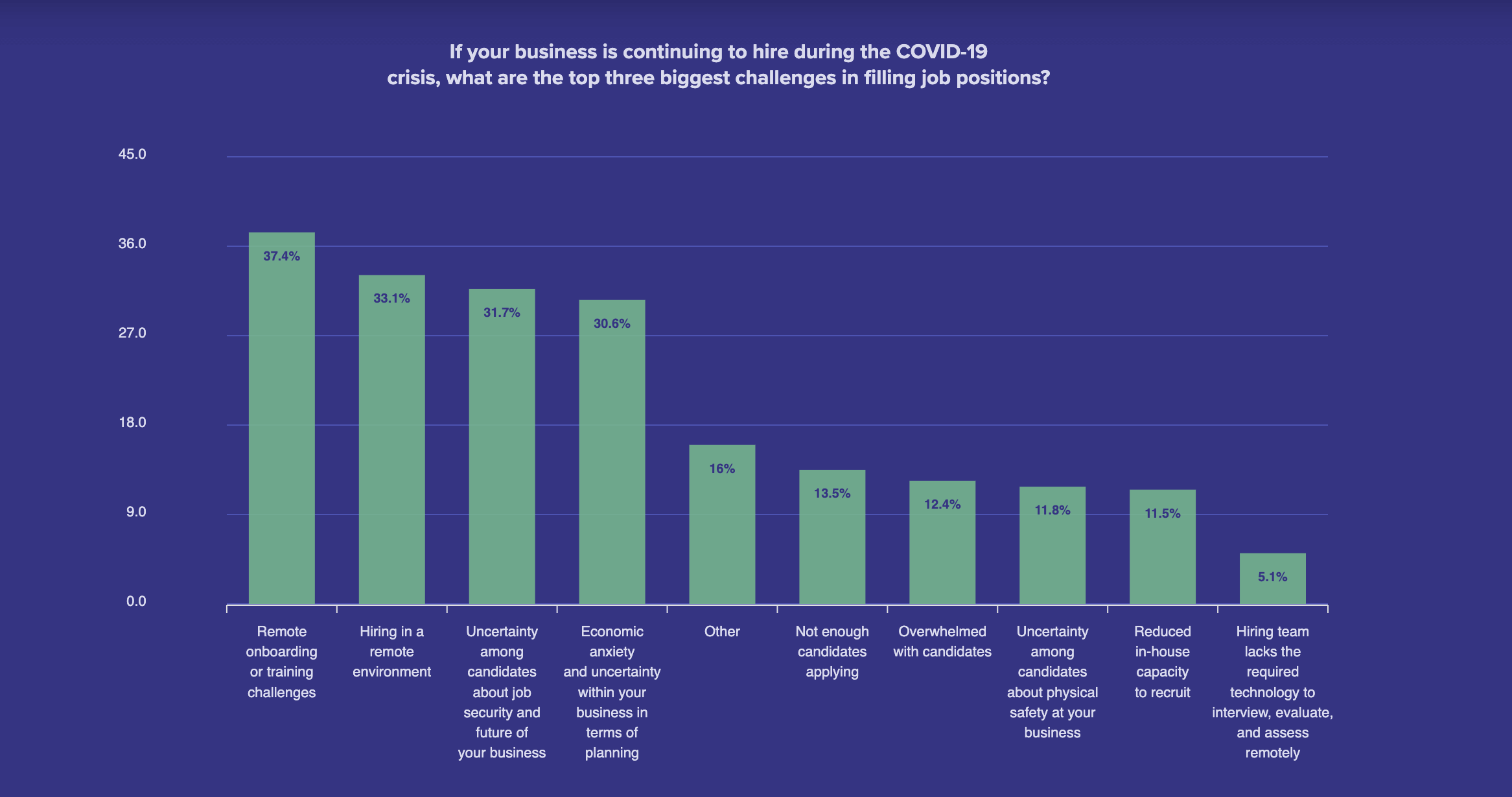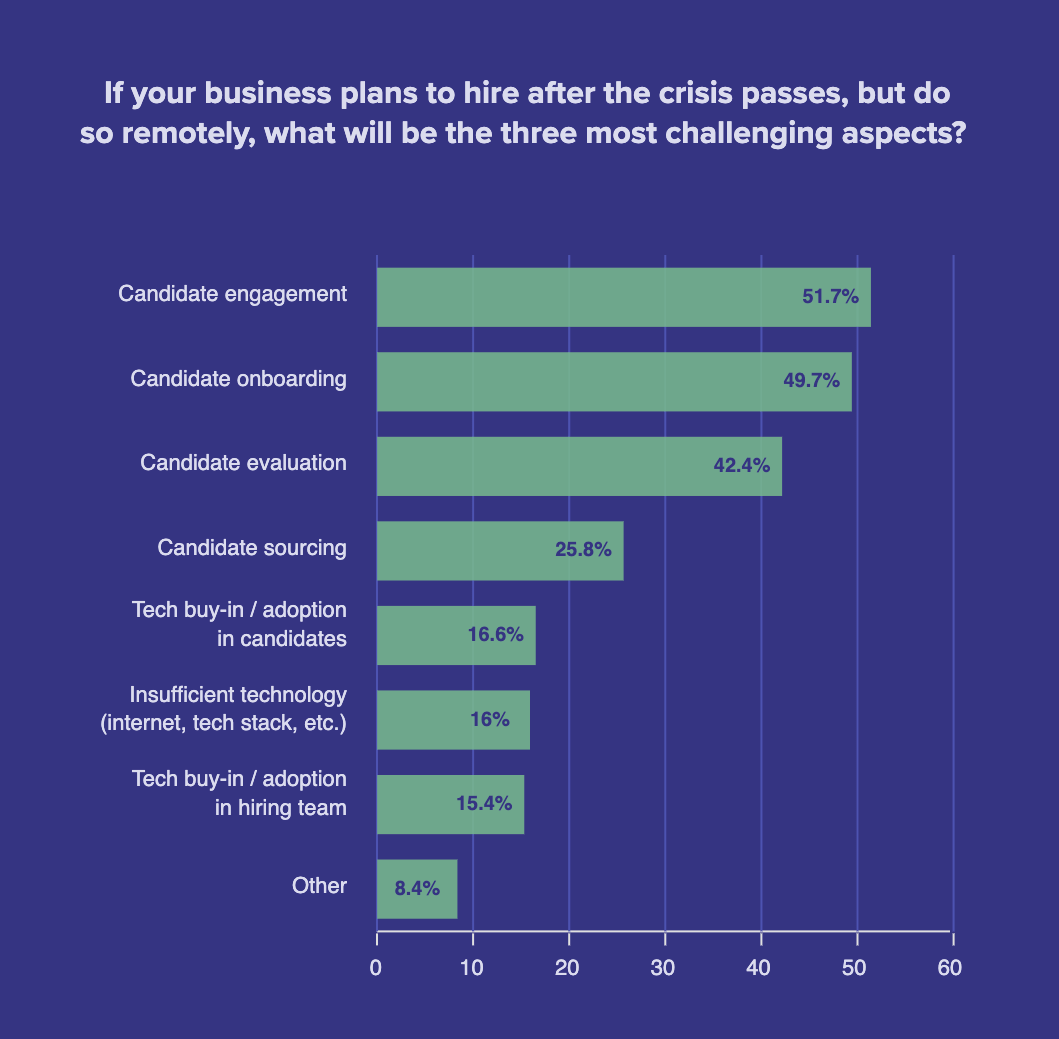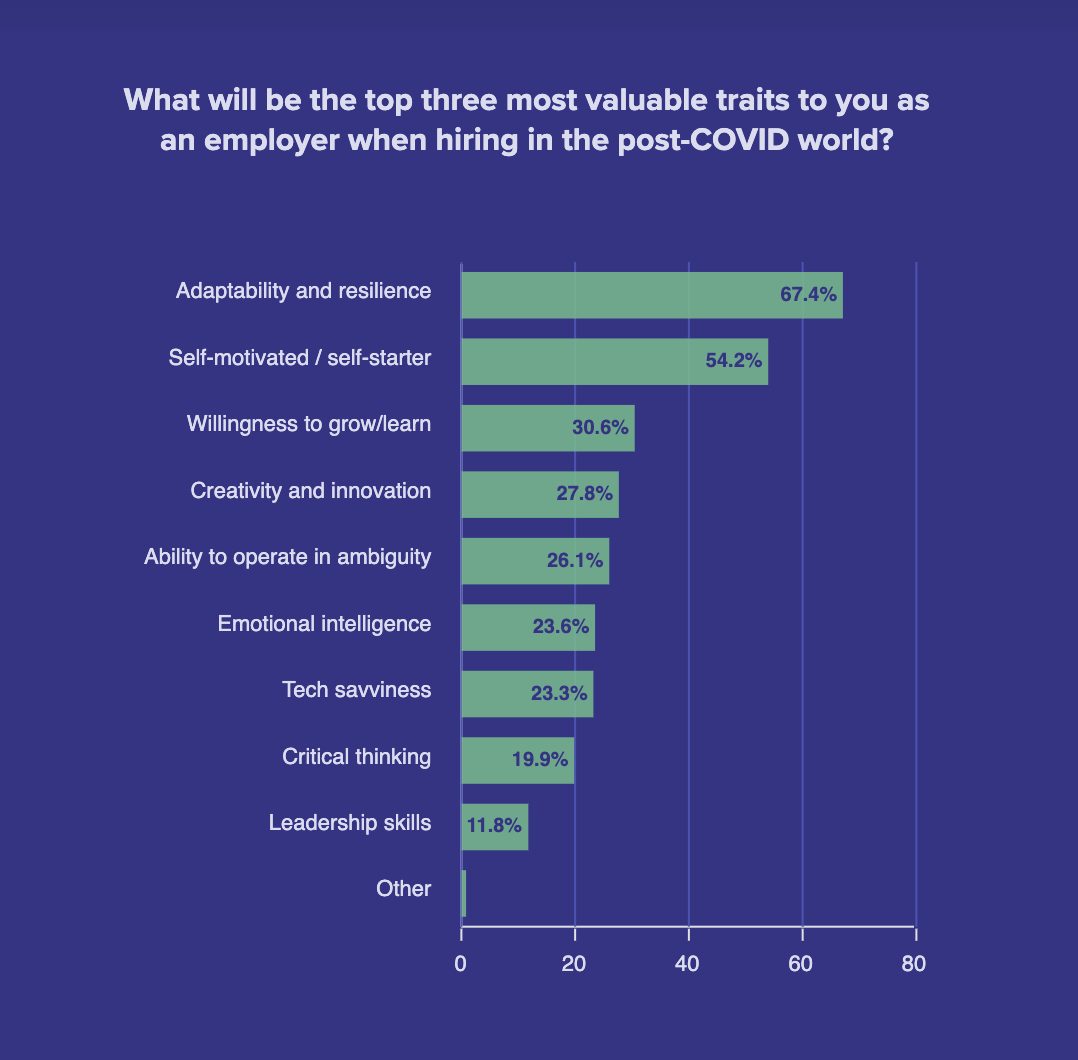Challenges of remote hiring: Tech isn’t the problem
This is the fourth in a series of excerpts from our New World of Work survey report which was published in August 2020. More than 350 respondents filled out the 30-question survey, resulting in numerous compelling insights both for business and recruitment interests. Here, we learn about the challenges businesses faced when hiring in a remote work world.

In this chapter, we address the following questions:
- What are the biggest hiring challenges during COVID-19?
- What will be the biggest challenges in hiring remotely after COVID-19?
- What skills are good for remote work?
When operating remotely, unique issues surface particularly in recruitment. Finding the right people to fill those much-needed roles is crucial to business success and survival; imagine doing that entirely via your laptop. So, we asked respondents about that in our New World of Work survey.
For those continuing to hire during COVID-19, a whole new set of challenges surfaced. Remote onboarding/training challenges (37.4%) and hiring in a remote environment (33.1%) are top of mind among respondents, with uncertainty among candidates about job security (31.7%) and economic anxiety within the business (30.6%) also listed as major concerns.
In regards to challenges of remote hiring and remote onboarding as well as training, perhaps the lack of remote experience indicated in the previous graphs is a factor. The recruitment process – so familiar to entry-level and veteran recruiters alike – looks very different in a remote environment. For recruiters and hiring managers, this can be a steep learning curve.
So, we asked respondents what they thought the biggest challenges of remote hiring would be going forward. The top responses were candidate engagement (51.7%), candidate onboarding (49.7%), and candidate evaluation (42.4%), easily doubling and even tripling any tech-focused concerns such as insufficient tech stacks and lack of buy-in/adoption.
So, evidently, the problem isn’t technology itself – also shown in previous graphs where tech adoption or availability lagged behind other challenges in shifting to remote. Rather, the problem may be worker know-how in conducting standard recruitment/HR practices in a virtual world. As above, recruiters need to relearn large parts of their work. This places a greater value on soft skills around adaptability and willingness to take on new skills.
“I think it will be vastly different depending upon the sector. My company is in the technology sector so I expect there will be minimal disruption to productivity and team engagement (if the past few months are any indication) but other sectors that are not so conversant with technology may have a much more challenging experience in shifting to new models of work.” – Survey respondent
In fact, our respondents highlighted these soft skills when asked about what the most valuable traits they would be looking for in new hires. Adaptability and resilience (67.4%) and self-motivated/self-starter (54.2%) led the way as sought-after traits.
One custom response in the “Other” category put it succinctly: “Ability to work remotely with limited supervision”.
This suggests that respondents see an uncertain road ahead, that requires plenty of pivoting for businesses and their employees – in a remote environment, no less – and so, they will look for candidates who thrive in that new world.
Recruiters are themselves also operating in that ambiguous, fast-changing environment. But there are many tools available that empower hiring teams to find, evaluate, and hire candidates in the new world of work.
Want to learn more? Navigate to:
- Chapter 1 on the impact that COVID-19 had on business and processes
- Chapter 2 on the magnitude of the shift to remote work
- Chapter 3 on the challenges of remote working and why
- Chapter 5 on the role of technology in remote work going forward
- Methodology and firmographics
- A collection of open-ended responses from those we surveyed.







